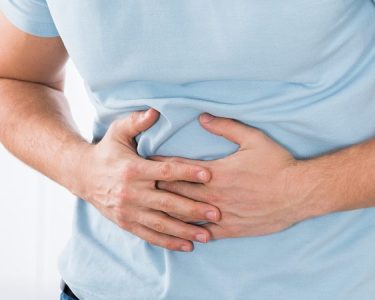Abdominal adhesions — bands of scar tissue that form between abdominal tissues and organs — are a common yet often overlooked source of chronic pain, bloating, and digestive discomfort. These sticky fibrous tissues can cause organs to stick together, leading to bowel obstruction, infertility, and other complications.
While surgery, infections, and inflammation are major triggers, diet plays a surprisingly powerful role in worsening or managing adhesion symptoms. Certain foods can intensify inflammation, promote gas buildup, and strain the intestines — all of which can make adhesions more painful and restrictive.
If you’re living with post-surgical adhesions or chronic abdominal discomfort, it’s essential to follow an Abdominal Adhesions Diet: What to Eat and Avoid for Relief. Knowing which foods can trigger inflammation and which can soothe your digestive system can make a significant difference in managing pain and promoting better gut health.
In this article, we’ll explore the top 10 dangerous foods to avoid for abdominal adhesions — and explain why they can make your condition worse.
Understanding Abdominal Adhesions
Before jumping into the food list, let’s briefly understand what abdominal adhesions are.
After any abdominal surgery, infection, or inflammation, the body naturally begins a healing process. Sometimes, instead of smooth healing, scar tissue forms bands that connect organs or tissues that should remain separate — like loops of the intestine, the bladder, or the uterus. Understanding this process is essential when exploring a Natural Treatment for Abdominal Adhesions, as lifestyle changes, gentle diet adjustments, and inflammation control can all support better healing and reduce discomfort.
These “adhesive” connections can:
- Restrict organ movement
- Cause cramping, gas, and bloating
- Lead to bowel obstructions
- Create sharp abdominal or pelvic pain
Diet won’t cause adhesions directly, but certain foods can inflame the gut, trap gas, or slow digestion, worsening your discomfort and potentially increasing complications.
1. Processed Meats
Processed meats like sausages, bacon, deli slices, and hot dogs are loaded with preservatives, nitrates, and saturated fats. These compounds trigger inflammation in the gut lining, making digestion harder and worsening abdominal tension.
Why It’s Harmful:
- High sodium content causes water retention and bloating.
- Saturated fats slow down digestion and promote constipation.
- Nitrates and additives can irritate intestinal tissues and trigger inflammation.
Better Alternative:
Choose lean, unprocessed proteins such as:
- Boiled chicken or turkey breast
- Grilled fish (salmon, cod, or tilapia)
- Plant-based protein sources like lentils or tofu
2. Fried and Fast Foods
Crispy fries, burgers, pizzas, and fried snacks are a digestive nightmare for anyone with abdominal adhesions. These foods are usually deep-fried in refined oils and packed with refined carbohydrates and artificial flavors.
Why It’s Harmful:
- Fried fats increase inflammation in the intestines.
- Slow digestion can increase abdominal pressure, worsening adhesion pain.
- Fast food often contains hidden trans fats that strain liver function and gut balance.
Better Alternative:
- Oven-bake or air-fry your meals instead.
- Replace refined oils with extra virgin olive oil or avocado oil.
- Prepare homemade meals with fresh ingredients to avoid hidden additives.
3. Dairy Products (Especially Full-Fat or Processed Ones)
Many people with adhesions also experience lactose intolerance or sluggish digestion. Milk, cheese, ice cream, and butter can cause bloating, gas, and mucus buildup in the intestines — all of which aggravate adhesion-related pain.
Why It’s Harmful:
- Dairy slows bowel movements.
- Lactose can ferment in the gut, causing excessive gas.
- Saturated fat increases inflammation in the abdominal cavity.
Better Alternative:
- Switch to lactose-free or plant-based milk (almond, soy, or oat).
- Use coconut yogurt or dairy-free cheese.
- If you tolerate dairy, stick to small portions of low-fat yogurt with probiotics.
4. Red Meat
Beef, mutton, and lamb may be rich in protein, but they’re hard to digest and can stay in your gut longer than other foods. For people with abdominal adhesions, that can mean more strain, bloating, and cramping.
Why It’s Harmful:
- High in saturated fat, which fuels inflammation.
- Can lead to constipation and intestinal blockages.
- Overeating red meat increases intestinal gas and discomfort.
Better Alternative:
- Substitute with lean chicken, turkey, or fish.
- Consider plant-based proteins such as lentils, beans, or chickpeas.
5. Refined Carbohydrates and White Flour Products
White bread, pasta, pastries, and cookies are made from refined flour, which lacks fiber and essential nutrients. These foods spike blood sugar levels and slow down bowel movement — both of which can worsen adhesion-related problems.
Why It’s Harmful:
- Causes constipation and sluggish digestion.
- Increases intestinal gas production.
- Promotes inflammation through high glycemic response.
Better Alternative:
- Choose whole grains like brown rice, quinoa, oats, and whole-wheat bread.
- Increase dietary fiber gradually to maintain soft bowel movements.
6. Carbonated and Sugary Drinks
Soft drinks, sodas, and even sparkling water can cause bloating and trapped gas — a serious issue for anyone with abdominal adhesions. Artificial sweeteners and added sugars further irritate the intestines and feed harmful gut bacteria.
Why It’s Harmful:
- Carbonation increases gas and abdominal pressure.
- Sugars trigger inflammation and bacterial imbalance.
- Artificial sweeteners like aspartame may worsen bloating and cramping.
Better Alternative:
- Drink plain water, infused with cucumber, lemon, or mint.
- Herbal teas (ginger, chamomile, or peppermint) soothe the gut naturally.
7. Cruciferous Vegetables (in Excess)
Vegetables like cabbage, cauliflower, broccoli, and Brussels sprouts are healthy — but in large amounts, they produce excessive gas that can be extremely painful when adhesions restrict intestinal movement.
Why It’s Harmful:
- Contain raffinose, a sugar that causes gas.
- May lead to abdominal swelling and discomfort.
Better Alternative:
- Steam or cook cruciferous vegetables thoroughly to reduce gas.
- Eat smaller portions or replace with spinach, zucchini, or carrots.
8. Legumes and Beans (if not properly prepared)
Beans, lentils, and peas are nutritious, but they can also produce large amounts of gas and bloating if not soaked or cooked properly.
Why It’s Harmful:
- Contain oligosaccharides that ferment in the gut.
- Gas pressure can pull on adhesion sites, causing pain.
Better Alternative:
- Soak beans overnight and cook them well.
- Start with smaller portions.
- Add digestion-friendly spices like cumin, ginger, or fennel.
9. Spicy and Acidic Foods
Chili, vinegar, tomato sauces, and citrus-based foods may irritate the stomach lining and increase acid production, leading to discomfort and inflammation in the abdomen.
Why It’s Harmful:
- Irritates digestive tissues around adhesion sites.
- Can cause acid reflux and abdominal tightness.
Better Alternative:
- Use mild spices like turmeric, cumin, or coriander.
- Replace tomato sauce with steamed vegetable puree.
10. Packaged and Ultra-Processed Snacks
Chips, instant noodles, biscuits, and ready-to-eat meals are filled with refined carbs, artificial additives, preservatives, and trans fats — all of which can fuel chronic inflammation and digestive sluggishness.
Why It’s Harmful:
- Disrupts healthy gut bacteria.
- Increases constipation and bloating.
- Contributes to systemic inflammation that can worsen adhesion symptoms.
Better Alternative:
- Snack on fruits, nuts, or homemade granola.
- Choose natural whole-food snacks like boiled sweet potatoes or roasted chickpeas.
Additional Tips for Managing Abdominal Adhesions Through Diet
Now that you know the main foods to avoid for abdominal adhesions, here are some extra nutrition strategies to keep your digestion smooth and your inflammation low.
1. Eat Smaller, More Frequent Meals
Large meals stretch the intestines and put pressure on adhesion sites. Eating 4–5 small meals per day helps your system digest food more efficiently.
2. Stay Hydrated
Water keeps your stool soft and helps prevent constipation. Drink at least 8–10 glasses of water daily — or more if you live in a hot climate.
3. Include Anti-Inflammatory Foods
Focus on foods that reduce inflammation naturally:
- Turmeric (curcumin)
- Ginger
- Green leafy vegetables
- Omega-3-rich foods (salmon, flaxseeds, walnuts)
- Berries and colorful fruits
4. Add Fiber Gradually
Fiber helps maintain regular bowel movements, but too much too quickly can cause gas. Introduce it slowly and monitor your body’s reaction.
5. Avoid Constipation Triggers
Low-fiber diets, dehydration, and inactivity can all worsen adhesion symptoms. Regular light exercise (like walking or yoga) supports healthy digestion.
6. Keep a Food Diary
Track what you eat and how you feel afterward. This helps identify your personal food triggers and tailor your diet to your body’s needs.
When to Seek Medical Help
If you experience severe pain, vomiting, bloating, or inability to pass stool or gas, seek immediate medical attention — these can be signs of bowel obstruction, a dangerous complication of abdominal adhesions.
Dietary control can manage mild symptoms, but serious cases might require medical evaluation or surgical intervention (like laparoscopic adhesion removal).
Conclusion: A Gentle Diet for a Sensitive Abdomen
Living with abdominal adhesions can be frustrating, but what you eat plays a major role in how you feel daily. Avoiding processed, fried, and inflammatory foods while focusing on anti-inflammatory, easily digestible meals can greatly reduce discomfort and improve quality of life.
By paying attention to your diet — particularly the foods to avoid for abdominal adhesions — you take a powerful step toward reducing inflammation, promoting healthy digestion, and protecting your abdominal health long-term.
Your goal isn’t to follow a restrictive plan but to nourish your body with foods that support healing and reduce strain. Every small dietary change adds up to less pain, more energy, and a happier gut.




